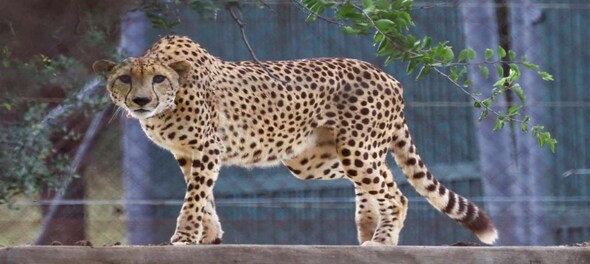
A total of 20 Cheetahs were translocated from Namibia and South Africa to the Kuno National Park in Madhya Pradesh as part of the ambitious Project Cheetah last year. Later, four cubs were born from a cheetah named Jwala. The efforts of rehabilitating cheetahs in India were met with massive roadblocks after instances of back-to-back deaths of these felines.
Of the total 24 cheetahs, nine including three cubs have died within just five months, since March. In the latest casualty, a female cheetah named Dhatri was found dead in the morning on Wednesday, August 2.
Some of these big cats reportedly developed infections due to the radio collar. The instances drew attention from the Supreme Court which directed the Centre not to make the matter a prestige issue and take adequate steps to address it.
In response, the Ministry of Environment and Forests and the National Tiger Conservation Authority (NTCA), in a joint affidavit, told the Supreme Court that the death of the cheetah in KNP is concerning, but not unduly alarming. The Centre assured that the surviving cheetahs are being examined as a precautionary measure.
The affidavit claimed that provisional diagnosis of mortality events points towards "natural causes” and none of the cheetahs have died due to unnatural reasons such as poaching, snaring, poisoning, road hits, or electrocution.
The affidavit added that the general scientific awareness of cheetahs shows they have a very low survival rate of 50 percent in adults even in non-introduced populations, which are essentially native species.
The joint response stated that in view of the recent deaths, steps were being taken by the authorities to ensure the well-being of the surviving cheetahs. All remaining cheetahs are being captured and medically examined to diagnose any underlying health issues. A total of 13 adults and 1 cheetah cub have already been examined.
Authorities are administering prophylactic treatment of all surviving cheetahs and a review of project implementation is also underway.
International experts are being consulted for training and capacity building of veterinarians, frontline staff and officials, the affidavit said.
An officer associated with Project Cheetah indicated that the thicker skin coats of the cheetah meant for African weather could also be playing a role in increasing the risk of infection. “The combination of moisture, thicker coats in anticipation of the African winter and high parasite (mainly tick) loads result in localised skin infections (dermatitis) and this is followed by fly strike (myiasis) the integrity of the skin becomes severely compromised," the officer was quoted as saying by Times of India.
(Edited by : Priyanka Deshpande)
Check out our in-depth Market Coverage, Business News & get real-time Stock Market Updates on CNBC-TV18. Also, Watch our channels CNBC-TV18, CNBC Awaaz and CNBC Bajar Live on-the-go!


Just 8% women candidates contested first two phases of Lok Sabha polls
Apr 29, 2024 12:00 PM
The sexual assault case against Prajwal Revanna — here's what we know so far
Apr 29, 2024 11:36 AM
Repolling underway at one polling booth in Chamarajanagar LS segment in Karnataka
Apr 29, 2024 10:32 AM

